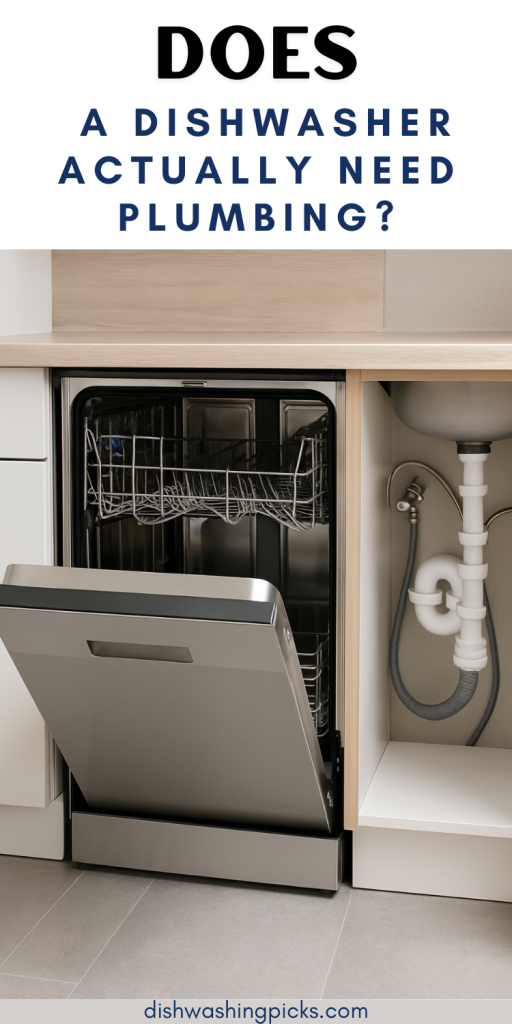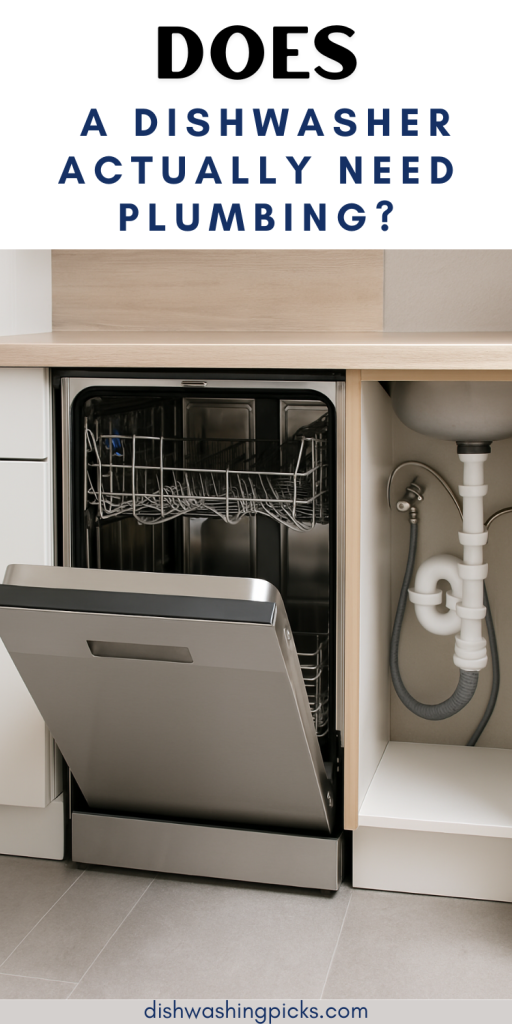
Okay, real talk—if you’ve ever asked yourself, “Do I need plumbing for a dishwasher?”—you’re not alone. It’s one of those questions that hits you right after the excitement of buying one… and right before the panic sets in.
So here’s the deal: yes, most dishwashers need plumbing. But don’t let that freak you out. We’re not talking about building an underground pipeline or rerouting rivers here. It’s basic stuff—like a water supply line and a drain. That’s it.
Imagine your dishwasher like a super picky roommate. It needs two things to function:
- A way to get clean water in, and
- A way to get dirty water out.
That’s plumbing, folks. Nothing wild.
But Wait—Aren’t There Dishwashers Without Plumbing?
Ah, yes. Good question. So here’s the twist: not every dishwasher needs to be hard-plumbed into your kitchen.
There are a few exceptions:
- Portable dishwashers – these bad boys roll up to your sink and connect right to your faucet. No fancy plumbing required.
- Countertop models – smaller, compact units that also hook to your faucet and drain into the sink.
If you’re renting, in a small apartment, or just not ready to commit to full-blown dishwasher life, these are solid options. All you need is a faucet, some space on your counter (or floor), and a little patience for setup.
But if you’re going the traditional, built-in route (you know, the kind that slides into your lower cabinets like it’s moving in for good), yep—plumbing is a must.
What Kind of Plumbing Are We Even Talking About?
Alright, let’s break it down.
A typical dishwasher setup needs:
🛠️ 1. A Water Supply Line
This usually connects to your kitchen sink’s hot water valve. It’s what feeds the dishwasher that steamy goodness to get your plates squeaky clean.
👉 Tip: It’s best to use hot water because dishwashers don’t heat cold water very efficiently on their own.
🛠️ 2. A Drain Hose
This sends all the dirty, gross water out. Normally, it runs into the same drainage system your sink uses, usually through an air gap or high loop to avoid backflow (yep, that’s as gross as it sounds).
🛠️ 3. An Electrical Connection
Okay, this isn’t technically “plumbing,” but it’s part of the install. Your dishwasher either plugs into an outlet under the sink or is hardwired directly into your home’s system.
And just like that, it’s good to go.
Can I DIY the Plumbing?
Alright, let’s be honest—plumbing sounds way more intimidating than it actually is. If you’re handy and comfortable turning off your water and dealing with some flexible tubing, you could probably do it yourself.
But—big but—if you’re not sure what you’re doing, it’s totally okay to call in a plumber. There’s zero shame in wanting to avoid a flood in your kitchen just because you tightened the wrong thing.
Here’s a little checklist to help you decide if you should DIY or call in the pros:
- ✅ Are you replacing an old dishwasher with a new one? Easy swap.
- ❓ Are you installing one for the first time? Might require drilling, rerouting pipes, or electrical work = pro time.
- 😬 Not sure where the water shut-off valve even is? Yeah… maybe don’t DIY this one.
Final Thoughts: Yes, But It’s Not That Deep
So, does a dishwasher need plumbing? Yeah, it does. But it’s not rocket science. If your kitchen is already dishwasher-ready, it’s a quick connect-and-go. If not, well… a little help from a plumber and you’re golden.
And hey, once it’s all hooked up and you’re watching it do its thing while you chill with a cup of coffee—worth it. Every. Single. Time.
Ready to Add One?
If you’re planning to install a dishwasher, now you know what to expect. Got plumbing? Great. No plumbing yet? Still totally doable. Just take it one step at a time. Or call in a pro and watch them do it while you pretend you could’ve done it yourself. 😎

